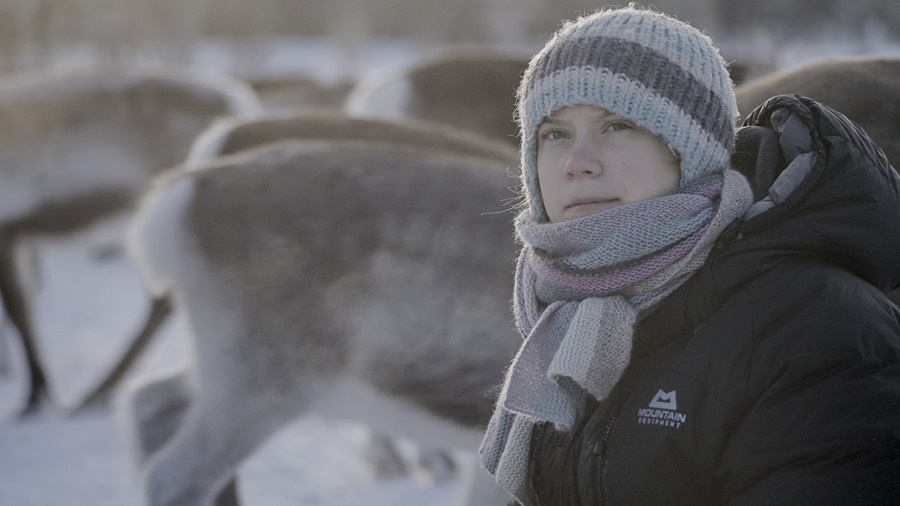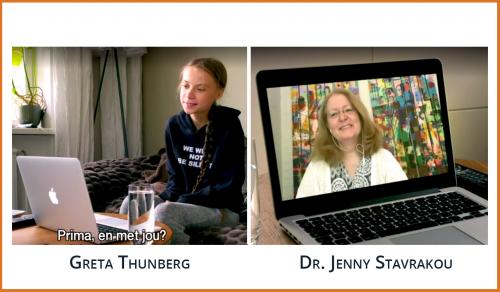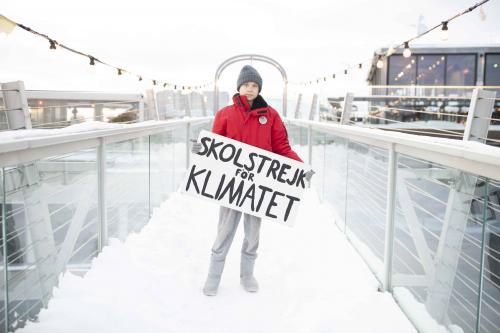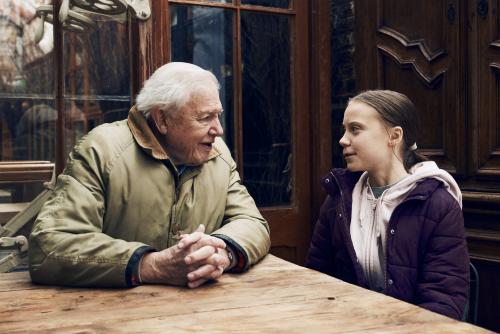On Friday June 18, a new documentary around the inspiring figure of climate change activist Greta Thunberg will be released in Belgium. The three-part documentary series, called Greta Thunberg: A Year to Change the World follows her from August 2019 to late 2020, when she was aged 16–17. Starting in 2019, Greta took a year off school to explore the science of global warming and challenge world leaders, calling for action on climate change.
Her mission would take her across the globe to demand world leaders meet their promises to try to limit global warming, and to encounter climate scientists all over the world. However, the global health crisis, the COVID-19 pandemic, brought life to a standstill and pushed the climate crisis to the background.
As she travelled across the globe, Greta explored the science - from the melting glaciers of Canada to the coal mines of Europe. She witnessed first-hand the consequences of climate change, she met climate scientists and was confronted with the complexity of what is required to make change happen. Among the scientists that she encountered during her journey (virtually due to the pandemic) was the atmosphere and climate researcher Dr. Jenny Stavrakou of the Royal Belgian Institute for Space Aeronomy.

BIRA-IASB, who engaged in conversation about Earth's atmosphere and
climate with Greta Thunberg, for the BBC documentary "A Year to Change the
World".
In the third episode of the documentary, Greta and Jenny talk about the impact of the lockdowns on nitrogen dioxide and carbon emissions.
Jenny explains:
With the development of the COVID-19 pandemic and the resulting slowdown in economic activity, first in China and then in the rest of the world, emissions of key air pollutants caused by human activities (traffic, industry etc.) have sharply decreased.
This unanticipated planet-wide experiment allows us to examine the response of the atmosphere's chemical system and offers a glimpse into a potential future in which air quality would be improved following structural regulations in the emissions of nitrogen oxides, carbon monoxide, and volatile organic compounds.
While CO2 emissions decreased by 17% by mid-2020, this gain was significantly reduced (to a decrease of less than 7%) by the end of 2020, due to a quick and overcompensating restart of several economies after the shutdowns. Greta learned that even the substantial drop in emissions caused by the 2020 pandemic lockdowns is not enough to put the world on track to meet its climate goals, revealing the enormity of the challenge that tackling climate change poses. With mass protests off the agenda, Greta investigated what else could help limit the impact of climate change and what lessons can be learned from the international response to the pandemic.
Greta Thunberg: A Year to Change the World is part of Our Planet Now, the BBC’s ongoing commitment to programming that explores the environment and the challenges facing the natural world. The documentary was commissioned for BBC One and BBC iPlayer and co-produced with PBS, and made in partnership with The Open University.
Programmation: CANVAS Fridays June 18, June 25 and July 2 at 20h35
Credit: BBC





